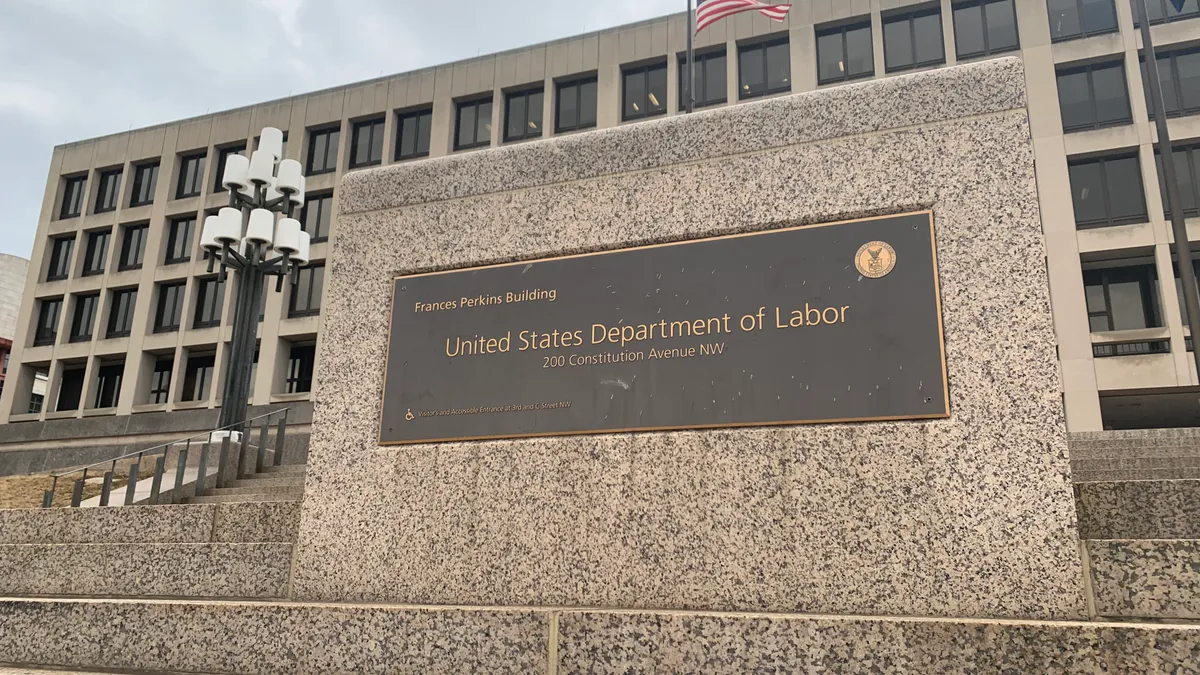In HR Dive’s Mailbag series, we answer HR professionals’ questions about all things work. Have a question? Send it to [email protected].
Q: Our company received a letter from the U.S. Equal Employment Opportunity Commission asking us to answer questions about our diversity, equity and inclusion programs. How should we respond?
A: The idea that a federal agency would make such a request became all too real in March, when EEOC Acting Chair Andrea Lucas sent letters to 20 large law firms asking for details on aspects of their diversity clerkship programs, their hiring and pay practices and their use of affinity groups, just to name a few.
If employers find themselves on the receiving end of a similar EEOC-led inquiry, they might want to share the letter with legal counsel — and, depending on the scope of the request, ask the issuing EEOC agent about the legal basis of the request, Jason Tremblay, partner at Saul Ewing, said in an email.
That’s because the EEOC’s authority to issue such letters to private companies is itself debatable, Tremblay said. Former Democratic EEOC officials said as much in a message to Lucas shortly after news of the letters, noting that Title VII of the 1964 Civil Rights Act “does not authorize the sort of public demand for information” requested by Lucas.
Nonetheless, the agency’s current leadership maintains that its requests do fall within its investigatory authority, and a company’s failure to answer could result in EEOC initiating a formal investigation, said Tremblay.
“In light of the foregoing, it is typically never a good tactic to simply ignore a governmental agency notice or request, including any request for DEI policy or practice information from the EEOC,” he continued.
By contacting the EEOC agent, an employer may have a legitimate basis to object to the request or negotiate in order to reduce its scope, Tremblay said.
What should the information-gathering process look like?
HR should immediately begin by locating and acquiring all requested information or, at minimum, identifying where each piece of information is located, Tremblay said — even if the organization ultimately decides not to respond to EEOC or declines to turn over the information.
The next step, he continued, is to research and discuss with legal counsel the scope of any potential response. Tremblay pointed to the example of government audits — a category under which EEOC DEI letters could fall — where employers typically tailor their responses as narrowly as possible.
“Given the significant and evolving legal aspects relevant to this issue, legal counsel should take the lead on any response to an EEOC letter or request for information,” Tremblay said. “Having said that, HR will be instrumental in gathering, laying out and providing the information and documents needed to respond.”
He added that, because HR is typically in charge of implementing DEI programs with respect to hiring, promotions, grants and similar areas, it is “absolutely critical” that the HR teams participate in the process of formulating a response.
If the employer decides to produce documents or information to EEOC, Tremblay said he recommends that the employer provide some form of a position statement or explanation of the company’s position of its DEI programming. Such a statement may, for example, outline the legitimate, nondiscriminatory reasons that the employer maintains those programs.
What should you tell employees?
If EEOC’s March announcement is any indication of future events, the agency may issue a press release publicly identifying employers to whom it sends information requests. That raises the possibility of employees finding out about the request, creating another set of considerations.
EEOC is encouraging employees who observe in good faith alleged incidents of unlawful or discriminatory DEI programs to report them to the agency, Tremblay said. Employers must avoid creating a hostile work environment and be aware of potential retaliation issues regarding workers who cooperate with EEOC, he added.
“There is no need to publish or announce the fact that the EEOC is investigating the company or requesting such DEI information,” Tremblay continued. “However, if employees do learn and/or inquire, best practices would be to share the message with the employees that the company is being cooperative, that the company believes that it is fully compliant with applicable laws and that the company expects any employees that are involved in the matter to be honest and cooperative.”
It may also be prudent to advise employees that, if they are contacted directly by EEOC, it is their choice to respond unless they are designated as a spokesperson for the company, Tremblay said. Employers also may inform staff that they may consult with HR if they have any questions and that the company will not engage in or permit retaliation against any employee as a result of their communication with EEOC.
























